About this course
LJMU's MA in Cities, Culture and Creativity provides a broad intellectual and academic understanding of urban development and cultural distinctiveness.
This course is currently not open for applications. This page will be updated with a link to apply when applications open.
- Gain understanding of key urban theories, trends, policies and dynamics
- Examine how cultural policy fits with broader strategies for re-imagining and regenerating cities
- Examine grassroots culture, social infrastructure and community development through captivating case studies and field visits
- Explore concepts such as city marketing, place identity, place brand and branding
- Develop your research design, project management and qualitative research skills
- Critically engage with the theories, principals, debates and policies that underpin the study of cities, cultures and creativity
- Benefit from our partnerships with LJMU’s Cities Lab, FACT cinema and media art gallery, the Royal Liverpool Philharmonic, Liverpool Biennal festival, the Everyman cinema and theatre, Tate Liverpool art gallery, the Institute of Cultural Capital (ICC), the Liverpool Business School, and the School of Humanities and Social Sciences
Dive right into contemporary UK and international cities from an exciting socio-economic, cultural, theoretical and practical perspective with this cross-disciplinary masters. Get ready to explore how people and policy shape our cities, and the key role culture and creativity have in driving the development of modern cities.
If you are already working in the industry or a related industry, this holistic and multidisciplinary programme will inform and enhance your practice. If you are progressing from undergraduate or changing career, this masters will open doors to job roles within culture, heritage and the creative industries including museums, tourism boards, community and voluntary sector, local councils, cultural centres, festival organisation, charities, marketing, communications, PR, urban regeneration and community development to name only a few.
Course modules
Discover the building blocks of your programme
Further guidance on modules
Modules are designated core or optional in accordance with professional body requirements, as applicable, and LJMU’s Academic Framework Regulations. Whilst you are required to study core modules, optional modules provide you with an element of choice. Their availability may vary and will be subject to meeting minimum student numbers.
Where changes to modules are necessary these will be communicated as appropriate.
Core modules
Understanding Cities: Theory, Culture and Social Change
30 credits
30 credits
This module develops your knowledge of theoretical approaches to understanding cities. It focuses on interrelationships between cities, culture, and urban change. It provides:
- an understanding of cities, culture and creativity in a different range of contexts
- the necessary knowledge to understand the social and cultural importance of cities
- an understanding of contemporary debates and their historical context
- an awareness of key urban theories, economic changes, cultural policy, trends and underlying dynamics
Research Methods
30 credits
30 credits
This module aims to improve your research and analytical skills with reference to cities, culture and creativity. Analysis and problem-solving skills are critical to student employability and subsequent success in most types of career and this is why research methods is the core module of this MA course. Those working in the arts and culture field are increasingly required to construct a business case for investment and produce measurable outcomes and so knowledge of data sources and research methods is desirable. Workshop assignments on this module include real world examples to help you grasp the relevance of this content. The module comprises introductory lectures on methodology and approach and more in-depth lectures covering techniques useful in practical assignments and in undertaking your dissertation.
Re-imagining Cities: Using Cultural Policy and Place Marketing
30 credits
30 credits
This module discusses how urban images and identities are constructed/reconstructed, by whom and for what purpose. You will explore in-depth concepts such as city marketing, place identity, place brand and branding. You will also investigate city service systems and the increasing importance of digital place to cities. Case studies from a wide range of cities are used to identify the multiple expressions of urban imagining and imaging globally.
Creative Communities
30 credits
30 credits
This module explores a series of case studies using differing scales of creative practice and interventions led by or instigated at individual or community level. The case studies will bring you an understanding of complex issues arising from creative communities as a focus of research or study. It aims to:
- provide an appropriate range and depth of theoretical and professional knowledge to enable you to understand the key issues and challenges for creativity and /or culture-led community interventions
- critically evaluate the impact of arts and culture on community building, civic participation and enhancing personal wellbeing, through a series of case studies and opportunities for critical inquiry
- develop your ability to evaluate critically established practices, paradigms and/or methodologies and foster the formulation of new critical insights into creative practices
Dissertation
60 credits
60 credits
This module aims to support you in applying critical skills in advanced research methods and methodologies. It helps you to identify appropriate methodologies, theoretical frameworks and resources to complete your dissertation successfully. It also supports you in developing and modifying your dissertation through discussion, reflection and feedback.
Your Learning Experience
An insight into teaching on your course
Study hours
The majority of teaching takes place on Wednesdays and Thursdays, with an intensive period of contact time at the start of semester one to kick start the programme.
Teaching methods
The course will be delivered via a mixture of lectures, seminars, workshops and field visits. Internships and placement opportunities will also be available across a range of cultural and creative industries in Liverpool.
Applied learning
You will hear from a range of high profile speakers, not only from LJMU's vibrant academic community, but also from elsewhere in the commercial, cultural and policymaking sectors. These regular guest speakers will elaborate on many of the programme’s key themes.
How learning is monitored on your programme
To cater for the wide-ranging content of our courses and the varied learning preferences of our students, we offer a range of assessment methods on each programme.
Where you will study
What you can expect from your School
The School is based in the Redmonds Building, in the heart of the bustling Mount Pleasant Campus and Liverpools growing Knowledge Quarter. Redmonds is shared by two Schools within the Faculty of Arts, Professional and Social Studies Liverpool Screen School and the School of Law - and Liverpool Business School, making for a rich blend of student learning experiences. The building is home to high quality lecture theatres and seminar rooms, social spaces, and a cafe. It is only a short walk from LJMUs Aldham Robarts Library, which contains all the resources you will require for your studies.
Course tutors

Dr Gerwyn Jones
- Programme Leader
Today's job markets are very competitive and, while researchers need to be academically bright, they also need to be adaptable and determined individuals who can apply their research skills practically in a variety of settings. This is a key feature of our MA and it is very rewarding to see students develop these skills and attributes during the 12 months they study with us.
Today's job markets are very competitive and, while researchers need to be academically bright, they also need to be adaptable and determined individuals who can apply their research skills practically in a variety of settings. This is a key feature of our MA and it is very rewarding to see students develop these skills and attributes during the 12 months they study with us.
Dr Gerwyn Jones specialises in economic and social geography. He completed his MA at Manchester University under the tutorage of Professor Jamie Peck, and his PhD at Liverpool University, under the tutorage of Professor Richard Meegan. After completing his PhD, Gerwyn worked in the private sector for five years as a senior research manager for asocial policy research consultancy. He returned to academia and joined the European Institute for Urban Affairs at LJMU in 2008, as part of Professor Michael Parkinsons leading urban research unit. In recent years, Gerwyn has worked as a co-investigator on ESRC funded research looking at the impact of recession and austerity on cities, and has published several academic papers on this topic inleading peer-reviewed journals.
Career paths
Further your career prospects
LJMU has an excellent employability record with 96% (HESA 2018) of our postgraduates in work or further study six months after graduation. Our applied learning techniques and strong industry connections ensure our students are fully prepared for the workplace on graduation and understand how to apply their knowledge in a real world context.
The programme has institutional ties with FACT, the Philharmonic, Liverpool Biennial, the Everyman Theatre and Tate Liverpool and these relationships offer insights into contemporary practice as well as work-related learning opportunities. Such hands-on experience is vital for your future professional success.
On graduation you will understand the development of urban environments and will be able to interpret place-making for a wide variety of purposes. For those who prefer a holistic approach to understanding cities - including social, economic, cultural and local historians, geographers, art historians, planning specialists, media practitioners, film-makers and journalists - this programme will inform your practice and deepen the range of your output.
Career opportunities for graduates include positions in: culture, heritage and creative industries within urban environments, museums, community and voluntary sectors, cultural centres, city councils, festival organisation, charities, regeneration projects, marketing and communications, public relations, arts and cultural bodies, administration, management, funding management and monitoring, teaching, research and academia.
Liverpool's cultural programme is world renowned and the potential to keep telling our story in new ways is a driver both for local engagement and tourism. To do this we need new ideas, fresh thinking and great imagination. By working with LJMU we hope to nurture and develop talent for the future good of the city.
Claire McColgan MBE, Director of Culture, Liverpool City Council
"Since starting the course, I have learnt in depth about cultural policy and its place in urban development, and the importance of grassroots community projects in invigorating and democratising the arts sector, as well as training in research methods."
Laura Parsons, Development Officer at Tate Liverpool
Fees and funding
Tuition Fees:
- Home part-time per credit:
- £44.40
Fees
The fees quoted at the top of this page cover registration, tuition, supervision, assessment and examinations as well as:
- library membership with access to printed, multimedia and digital resources
- access to programme-appropriate software
- library and student IT support
- free on-campus wifi via eduroam
Additional costs
Although not all of the following are compulsory/relevant, you should keep in mind the costs of:
- accommodation and living expenditure
- books (should you wish to have your own copies)
- printing, photocopying and stationery
- PC/laptop (should you prefer to purchase your own for independent study and online learning activities)
- mobile phone/tablet (to access online services)
- field trips (travel and activity costs)
- placements (travel expenses and living costs)
- student visas (international students only)
- study abroad opportunities (travel costs, accommodation, visas and immunisations)
- academic conferences (travel costs)
- professional-body membership
- graduation (gown hire etc)
Funding
There are many ways to fund postgraduate study for home and international students. From loans to International Scholarships and subject-specific funding, you’ll find all of the information you need on our specialist postgraduate funding pages.
Please be aware that the UK’s departure from the EU may affect your tuition fees. Learn more about your fee status and which tuition fees are relevant to you.
Entry requirements
You will need:
Qualification requirements
Undergraduate degree
- a minimum 2:1 in a related subject plus a reference
Further information
-
Extra Requirements
- You will not be interviewed
-
RPL
- RPL is accepted on this programme
International requirements
IELTS
- IELTS - 6.5 with a minimum of 5.5 in each sub test.
How to apply
Securing your place at LJMU
To apply for this programme you will need to submit a completed LJMU online application form, your academic transcript or equivalent and an academic reference.
Your university life
From accommodation and academic support to clubs and societies. Find out what LJMU has to offer.
Talk to our students
Connect with a current LJMU student for advice and guidance on university life, courses and more.
See what our students are saying
At LJMU we want you to know you’re making the right choice by studying with us. You can see what our students are saying about their experience with us through their reviews on the following websites:
Related Links
News and views
Browse through the latest news and stories from the university

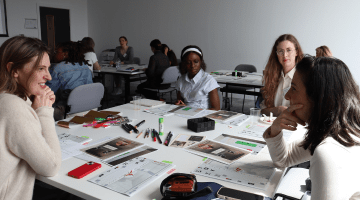
.png)



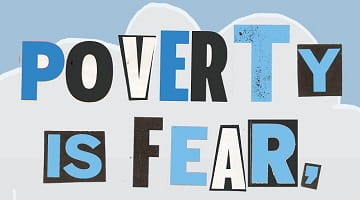
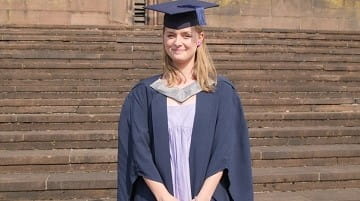
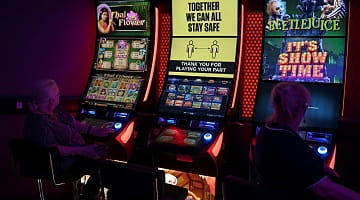
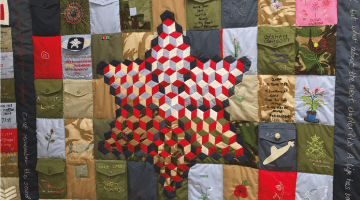
The University reserves the right to withdraw or make alterations to a course and facilities if necessary; this may be because such changes are deemed to be beneficial to students, are minor in nature and unlikely to impact negatively upon students or become necessary due to circumstances beyond the control of the University. Where this does happen, the University operates a policy of consultation, advice and support to all enrolled students affected by the proposed change to their course or module.










